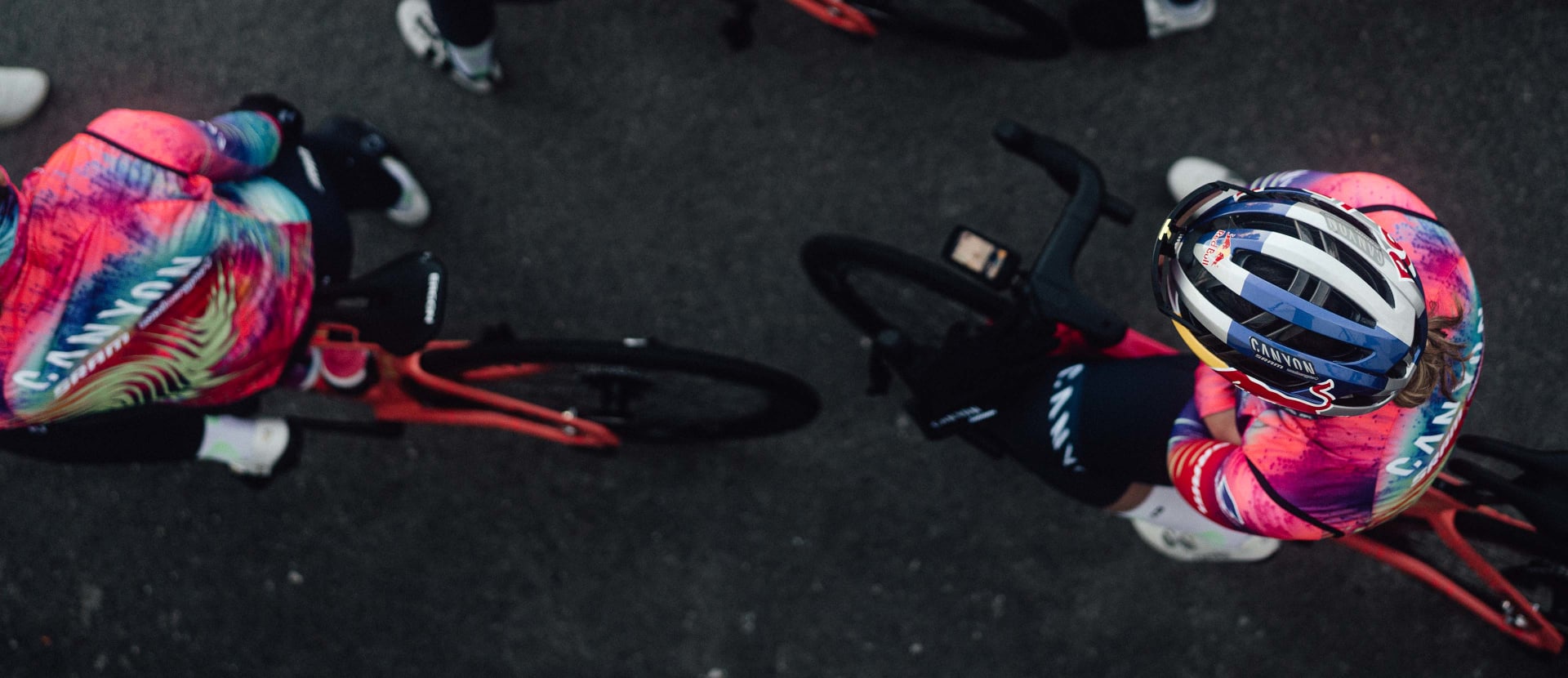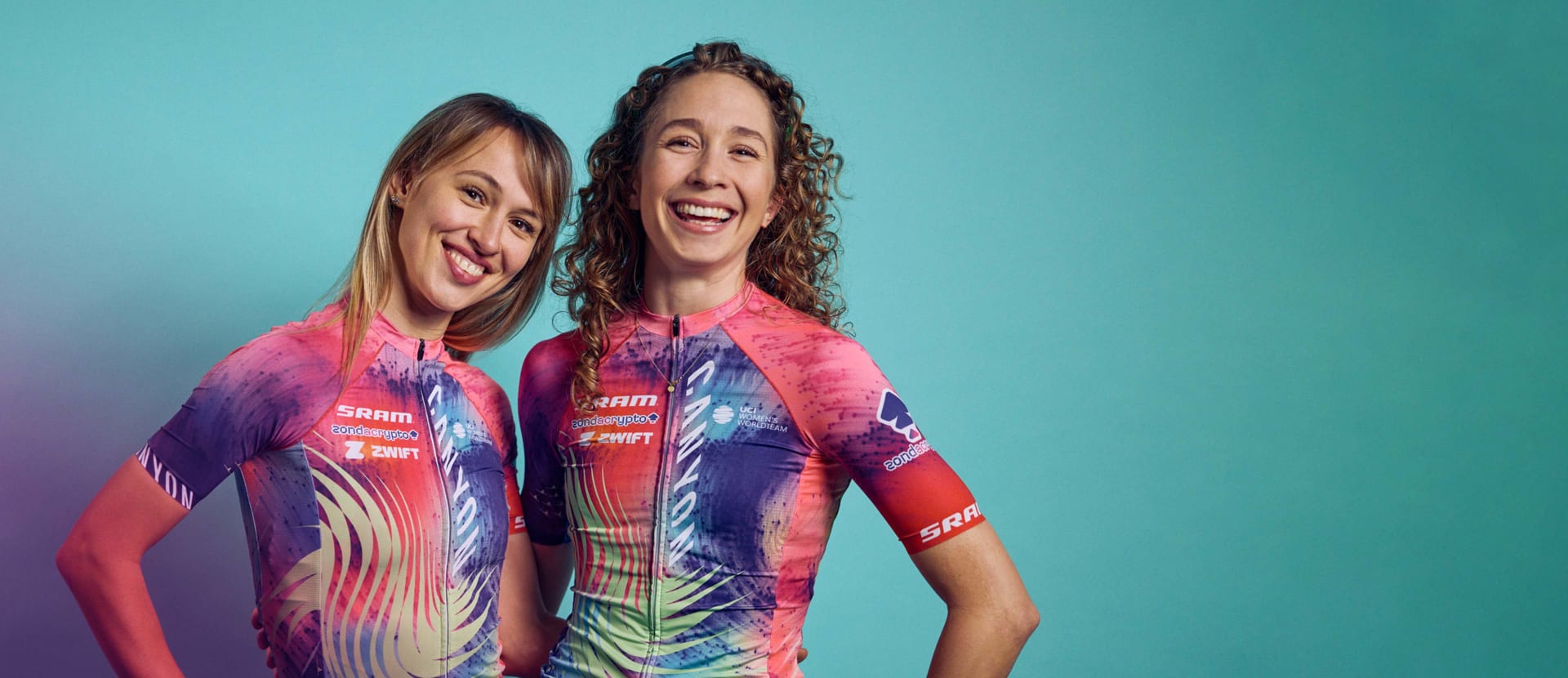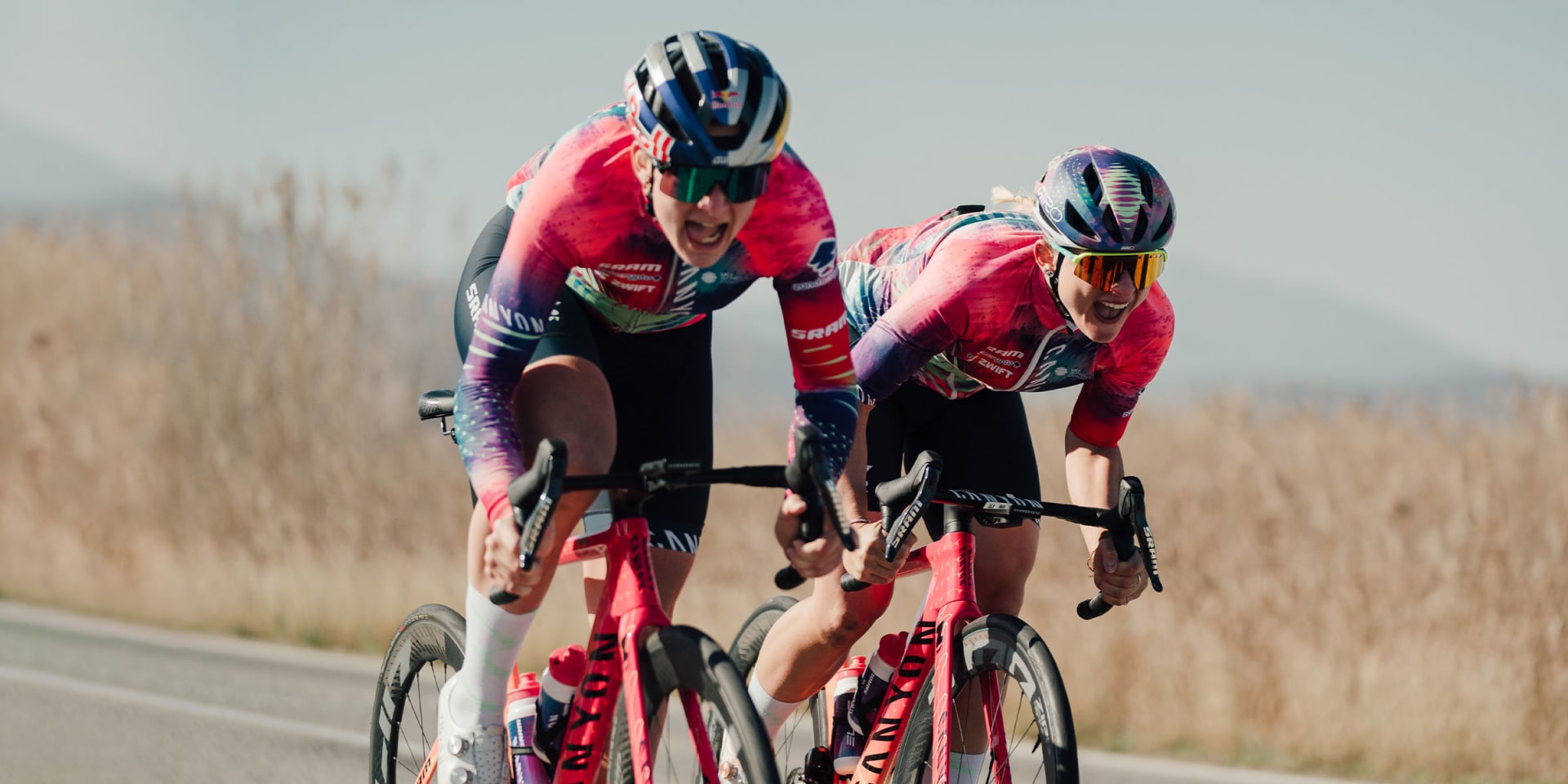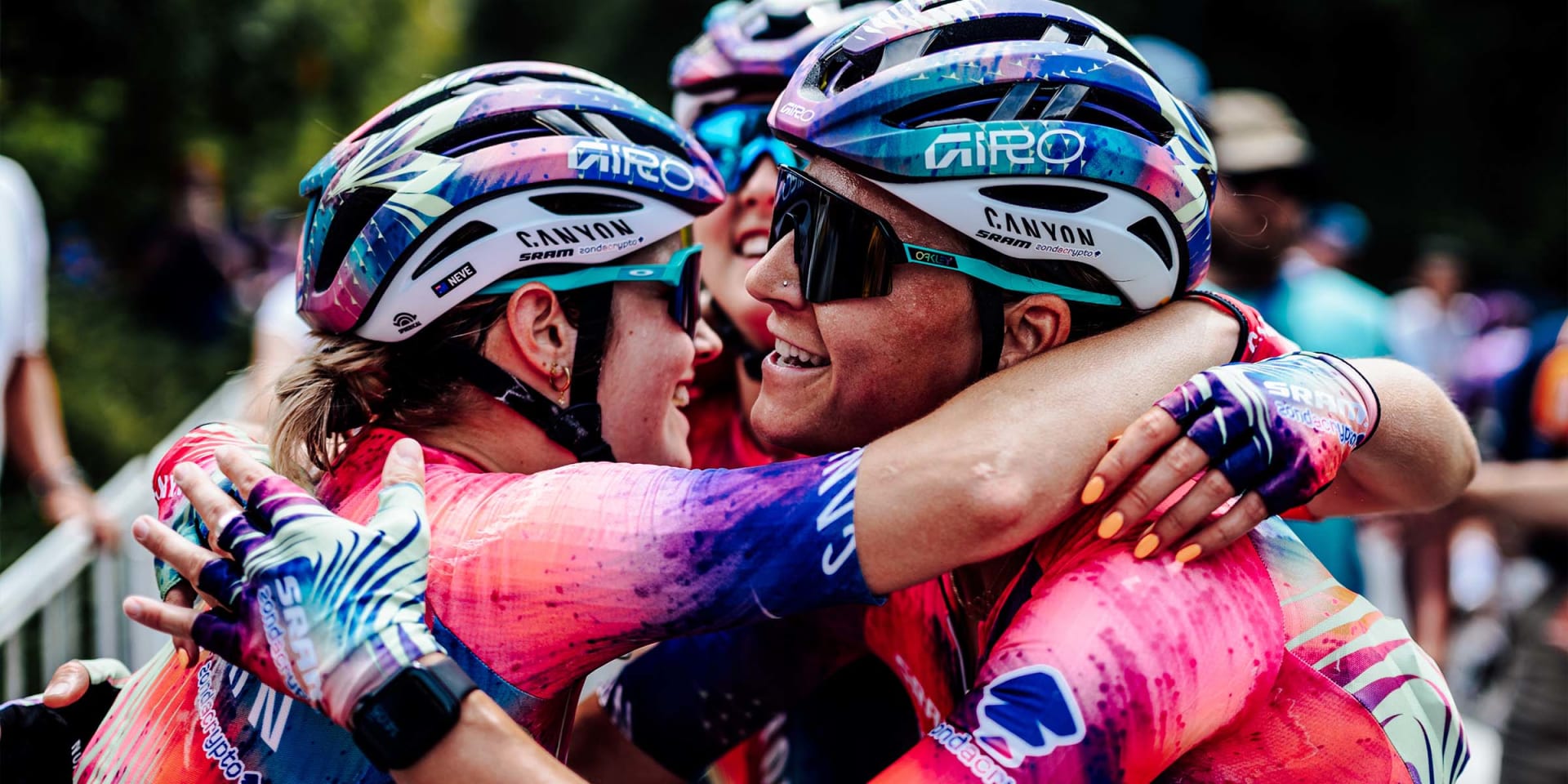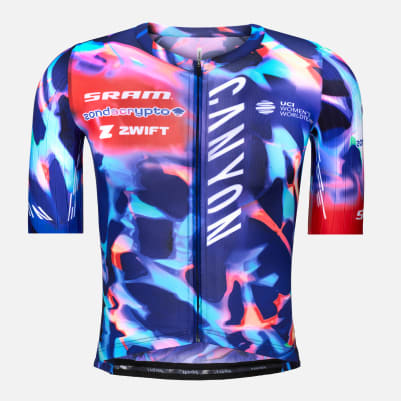A collective of free spirits
Race day is pure energetic spirit in all of its forms. Whether it’s winning the Tour by four seconds, or rising again after every injury. It’s the courage to embrace failure and follow the road to where the race excites you. Road, cyclocross, or gravel—it’s sticking together no matter. The CANYON//SRAM zondacrypto team ride as one, a blur of precision and power, each rider pushing limits for the collective win. It’s not just a race—it’s a relentless dance of pure fluctuation of energy, team spirit, and the unshakable spirit of youth.
And just like race day, the 2025 kit design doesn’t stand still. Bold colours and dynamic graphics bring to life the highs, the lows, and every surge in between. It’s the balance of power conserved and unleashed—a design that moves with the energy of the race and the spirit of the competition.
